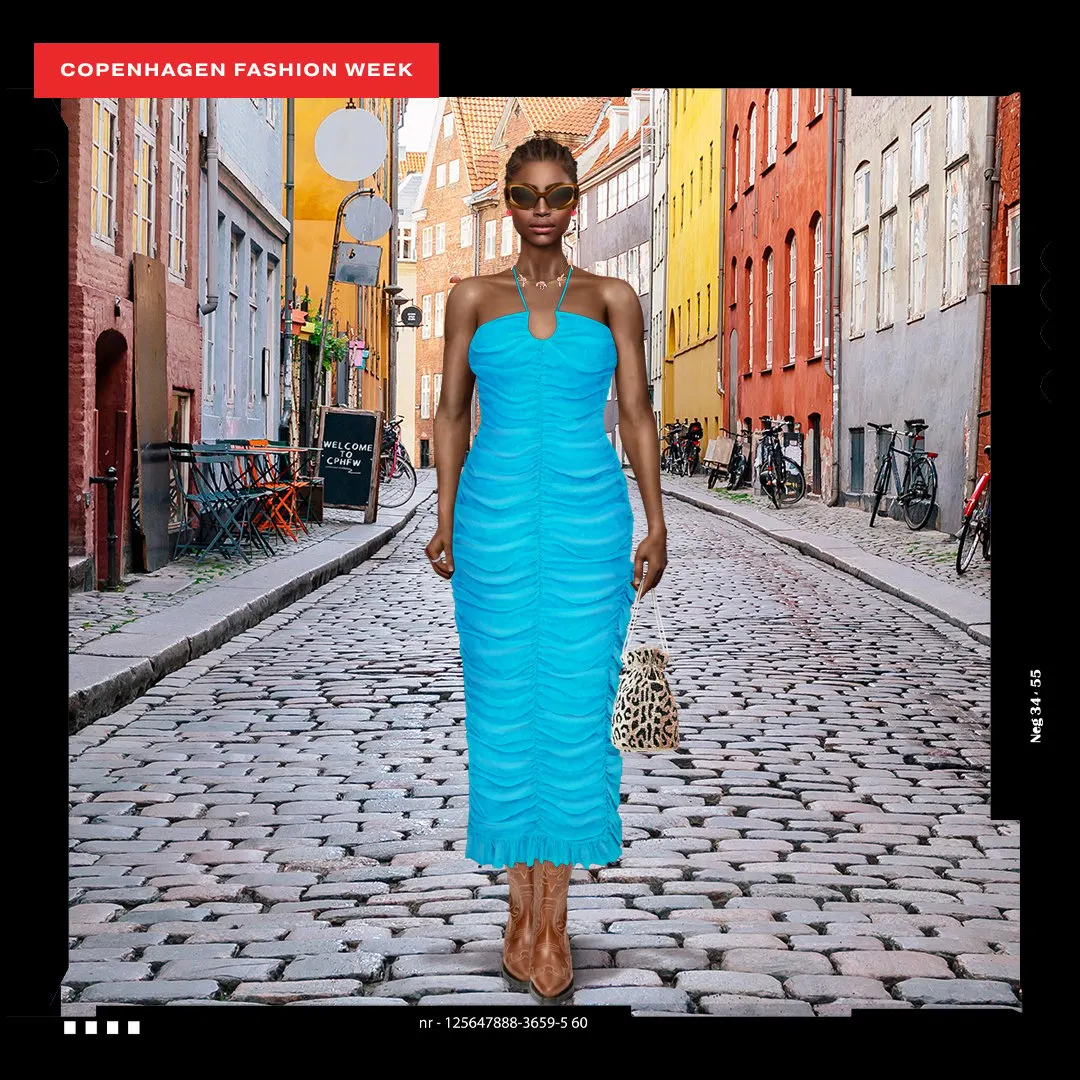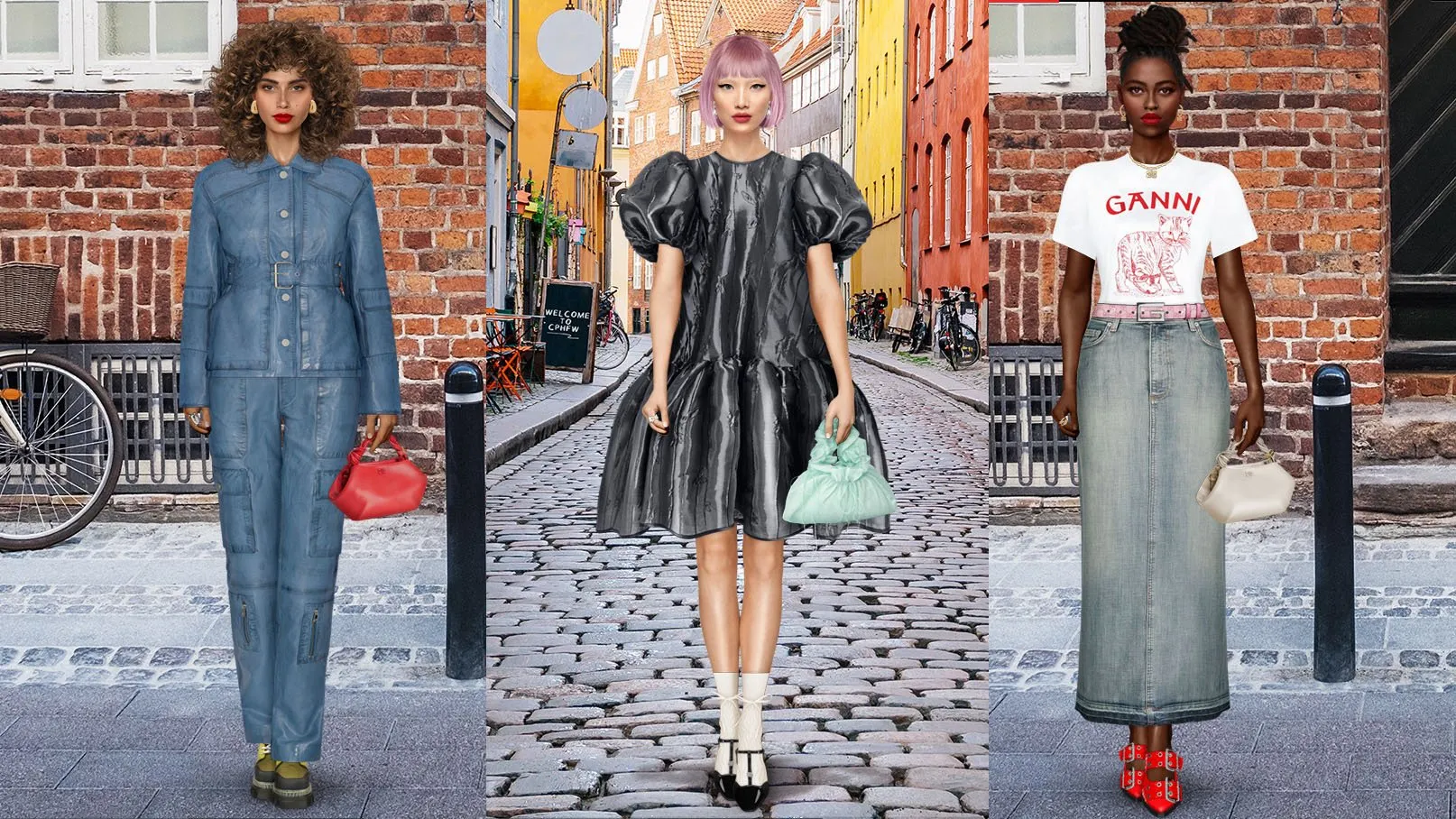The largest fashion event in Scandinavia has enlisted a luxury mobile style game to enhance its program with daily in-game challenges. Fans of Copenhagen Fashion Week can style avatars and put together streetwear outfits in Drest beginning Monday and running through Saturday, Aug. 12.
The companies pitch vibes ranging from the front row of runway shows to renown street style photographers like Phil Oh and Tommy Ton.
The collaboration will spotlight Nordic brands such as Ganni, Remain, Cecilie Bahnsen and Stine Goya, integrating brand storytelling and custom digital backdrops featuring iconic Danish sites.
“In recent years, Copenhagen Fashion Week has established itself as one of the most fun, energetic and playful showcases internationally,” Drest founder and CEO Lucy Yeomans told Decrypt. “It was a fantastic opportunity for us to allow our audience to discover these purpose-led brands.”

Yeomans noted that looks were only part of the equation.
"The brands showing all have very strong sustainability credentials," she said. "We were really drawn by this element."
Each challenge within the game is built around a brief to style a model avatar using real-life luxury brands and real world events. Once players have completed a challenge, the final look is voted for by the community. Digital wearables are both provided free of charge, earned or purchased.
“Our brand partners value the high level of creative execution within the game and the fact that through gaming, they can reach a wider, and highly engaged, audience,” says Yeomans. Formerly editor-in-chief of Net-a-Porter magazine Porter and Harper’s Bazaar UK, she founded Drest in 2019.
Drest works with over 260 luxury brands including Gucci, Bottega Veneta, Prada, Off-White, Loewe, Valentino, Cartier, Burberry and Fendi, with a current season digital assortment provided by both online retailer Farfetch and the brands directly.
While Drest is not currently Web3 enabled, its deals with luxury brands highlight the potential of both Web2 and Web3 based gaming as additional revenue streams for retail, including driving customer acquisition and engagement, according to its CEO.
Drest is moving closer to Web3, however. In June, the company announced a raise of $19.1 million taking the funding total to $38.2 million—news that followed the appointment of gaming and Web3 expert Henri Holm (previously with Sandsoft Games) as Chief Financial Officer. The capital will be used to fund the roll-out of an evolved and “metaverse-enabled” version of the current product.
According to Yeomans, the updated game will retain its core elements but include “a series of new features based on the proven elements of the metaverse.” This Web3 adjacency will constitute “new social elements that allow players to interact with one another within the game,” she says, alongside “the ability to create their own avatar.”
There will also be “multiple branded challenges and a new look and feel that will enhance the user experience.”
Drest also plans to achieve growth through the developer ecosystem, marketing channels, and strategic revenue streams, building on its 250% year-on-year user base growth, Yeomans said. Additional games within the Web3 and lifestyle space are being explored and will enter the R&D phase over the next 18 months.
Drest has provided an on-ramp for luxury brands to Web3 elsewhere, according to its CEO. Last year it partnered with the Oetker Collection luxury hospitality group, including hotels locations like Eden Rock at Saint Barths, The Lanesborough London, and Le Bristol Paris. Those iconic locations became backdrops for Drest’s in-game fashion challenges and shoots. Fast forward to March, and Le Bristol entered Web3 for real with the launch of Le Bristol Unlocked, its debut NFT collection.

